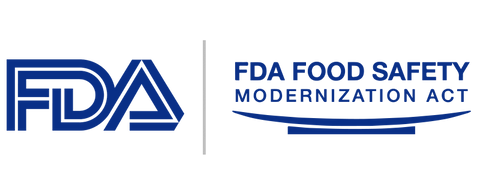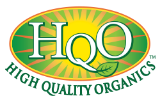
According to the Centers for Disease Control and Prevention (CDC), it is estimated that 48 million people (1 in 6 Americans) get sick, 128,000 are hospitalized, and 3,000 die from foodborne diseases each year in the United States. Agriculture, food, and related industries contributed approximately $1.055 trillion to the national U.S. gross domestic product (GDP) in 2020 – representing a huge economic asset. These statistics are relevant because these numbers essentially led the government to pass the Food Safety Modernization Act (FSMA).
Through specific guidelines provided by the Food and Drug Administration (FDA), food processors and handlers have an important role to play in preventing foodborne illnesses. As FSMA was introduced to the food industry, the act overhauled regulations regarding food production and gave the Food and Drug Administration (FDA) more authority to oversee and enforce supply chains. The FSMA shifts the focus from responding to foodborne illnesses to preventing them and affects almost every business that must register with the FDA.
What is the Food Safety Modernization Act?

The Food Safety Modernization Act (FSMA) was signed into law by President Obama on January 4, 2011. It was the most sweeping reform of our food safety laws in more than 70 years, and enabled the FDA to become more proactive about protecting public health by strengthening the food safety system. This act allows the FDA to focus more on preventing food safety problems, rather than reacting to problems after they occur.
The FDA finalized seven major rules to implement the FSMA. The rules translate the act into specific sections of the global supply chain to reduce contamination, and make it easier to implement the changes.
Click to learn more about implementing FSMA.
What is RTE?
The FDA defines (RTE) ready to eat foods as one “for which it is reasonably foreseeable that the food will be eaten without further processing that would significantly minimize biological hazards”. This means that Ready to eat (RTE) products should be in edible form without any additional preparation steps to achieve food safety. Due to the occurrence of foodborne illness cases and outbreaks raising concerns, RTE products must be pre-cleaned, pre-cooked, and mostly pre-packaged and ready for consumption without prior preparation or cooking.
At High Quality Organics, all of our products are 100% Ready To Eat. This allows us to provide consumers with not just a high quality product, but also a safe one. Not only does the production of RTE foods save you from potential foodborne illnesses, but it also cuts preparation time. These days, consumers are being driven by many obligations that take up most of their time throughout the day, leaving them with little to no time to prepare food. RTE foods are convenient for those who lack the time, but still want a quality product that they can trust.
How HQO is compliant with FSMA:
By following the FSMA guidelines that have been put into place, we implement programs that will help us prevent future problems, and anticipate them rather than reacting to them once they arise. The Hazard Analysis and Critical Control Point (HACCP) is a food safety protocol that we use here at HQO. It was actually first developed as part of humans outer space exploration program. This program is defined as the process of collecting and interpreting information on hazards and conditions leading to their presence to decide which are significant for food safety. The idea is to prioritize hazards, biological, chemical or physical and monitor and control them during the production of our products.
Because HQO is 100% Organic, we have a limited number of tools that help us eliminate pathogens. We use thermal treatments a method that uses steam and heat to kill the pathogens, while maintaining the quality of the product. We are able to treat the product while also maintaining its flavor compound and visual aspect. Thermal treatments are a very effective method for eliminating pathogens and hazards We also eliminate room for pathogens to infect our facilities by keeping a sanitation program in place. Our sanitation program consists of ATP test environmental monitoring, which is a rapid test method used to quickly access the cleanliness of surfaces. Or facility is swabbed daily, testing random areas of our facility like doorknobs, doorways, walls, forklift, etc., where during the normal course of the day our operators come to contact with.
HQO doesn’t operate any treatment facilities, so we rely on supply chain controls. This means that we analyze anything that comes into our facility – and make sure the proper documentation matches with the product. HQO does not accept any material without proper treatment documentation. Once treated, we still do a full microbial scan where we submit it to a 3rd party lab and test microbes to confirm the treatment was successful. If our suppliers don’t have access or resources to get these treatments done, we take care of it for them and send it to a lab ourselves. Aside from these practices, HQO conducts annual training on FSMA Compliance. HQO Team Members in all areas of our manufacturing process are trained on what regulations are in place, and the actual procedures we conduct. With the growth of RTE foods in the food industry, customers have a high degree of confidence in the safety of foods that are presented for sale as RTE. By providing the proper testing and documentation, we make sure our customers receive the highest quality product possible while ensuring safety and cleanliness. To learn more about our RTE products, you can visit our website at hqorganics.com.
